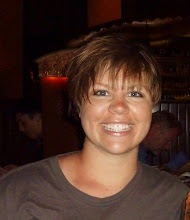That said, I believe Our Grand Experiment is about the hierarchy of society and the culture at a rural, Utah college. Particularly, the influence of the dominant religion on each of the student's lives. The driving point seems to be the rebellion, the clinging to, or the utter disdain for this cultish entity that is completely separate from the actual theology of the church, but is so rigidly maintained by the people in it.
As for who this novel is about, the characters that seem to embody what I believe this novel to be about would have to be Michael, Sabrina, Todd, Gill, John, Nikki, and Jenna (of course I included my own character--DUH! :P).
I think what this novel says, is that despite the social pressures and the ingrained doctrines, people are still free to choose their paths. Some have the gumption to do so, while others, well, drop balls. But the point is that through experience, trial, and error the characters are capable of becoming more well-rounded individuals. To illustrate my point, let us take a scene from Chelsea's life:
Chelsea met a boy named Jacob on the internet (GASP!!!). She talked to him nearly every day on her instant messenger. He called her at least twice a week. This carried on from the end of August until the beginning of December. Because the relationship had evolved, they decided to meet. However, Jacob conveniently missed each of the meetings. Then Chelsea found out Jacob was hiding her from his family because his mother did not approve. Jacob was 22. Last time Chelsea checked, the iron clad apron strings were still firmly tied around his neck.
While it is sad, it is also true. In fact, Jacob's mother became so upset that he was contacting me he had to buy his own cell phone because she did not approve of him talking to a girl he had met online (insert sarcastic eye-roll here). For a long time all she knew was my name and that he frequently talked to me. The moral of this story is that at the age of 22, Jacob should be able to choose for himself what he wants to do. Because he didn't have the kahunas to stand up to his mother, we haven't spoken in over three months. Bravo, Mom. Bravo. Your son is a spineless, mindless jellyfish who can't do anything without your say-so. That is what I call a productive, well-adjusted member of society...(again, insert sarcastic eye-roll here).
The point of this little drama--trust me, there is one--is that in our novel, the people whose parents were over-bearing, over-protective, and ultra-conservative have created offspring who cannot think for themselves, who are incapable of decision making, and who follow blindly because they don't know how to see. When these people are sent to college where they are forced to make decisions, they either thrive or fail. That is what our novel is saying.
